[人教新课标]高考第一轮复习课件book 1 Unit 1 Friendship人教版
文档属性
| 名称 | [人教新课标]高考第一轮复习课件book 1 Unit 1 Friendship人教版 | 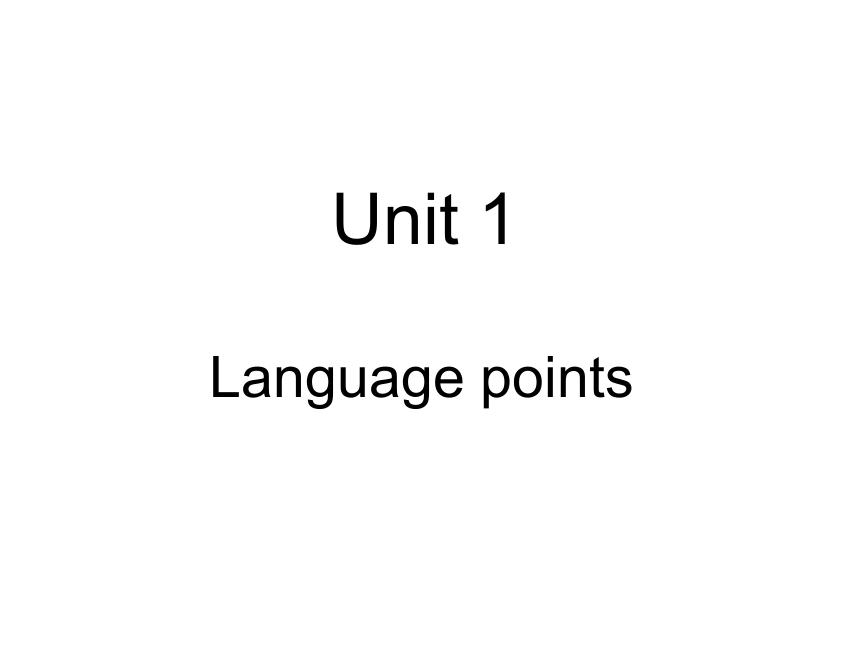 | |
| 格式 | zip | ||
| 文件大小 | 270.7KB | ||
| 资源类型 | 教案 | ||
| 版本资源 | 人教版(新课程标准) | ||
| 科目 | 英语 | ||
| 更新时间 | 2013-09-25 20:02:54 | ||
图片预览


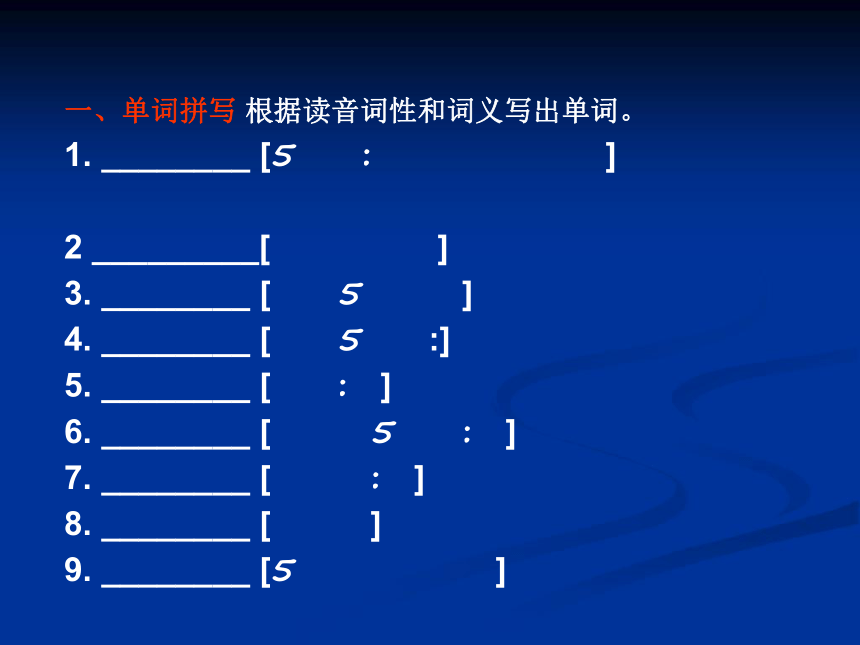
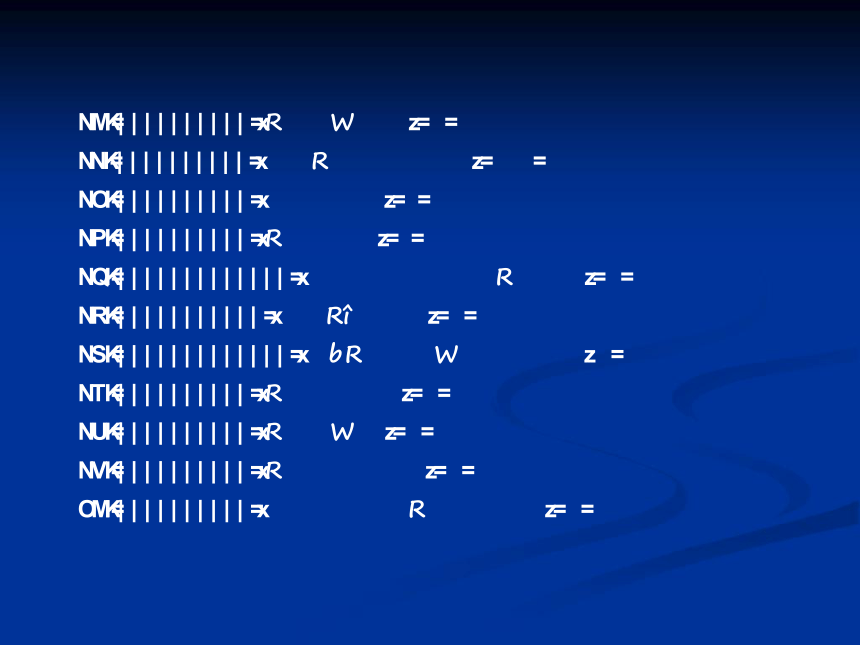




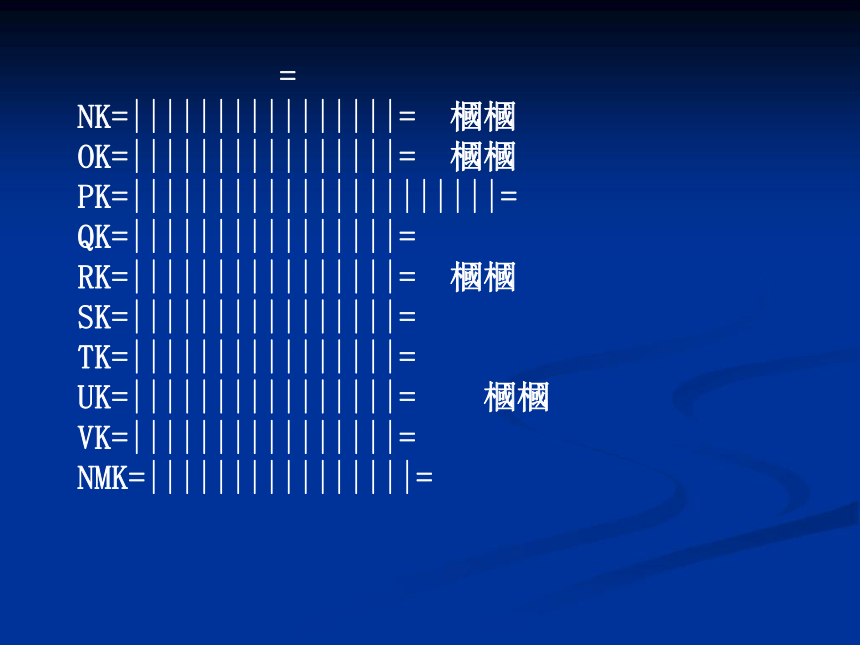
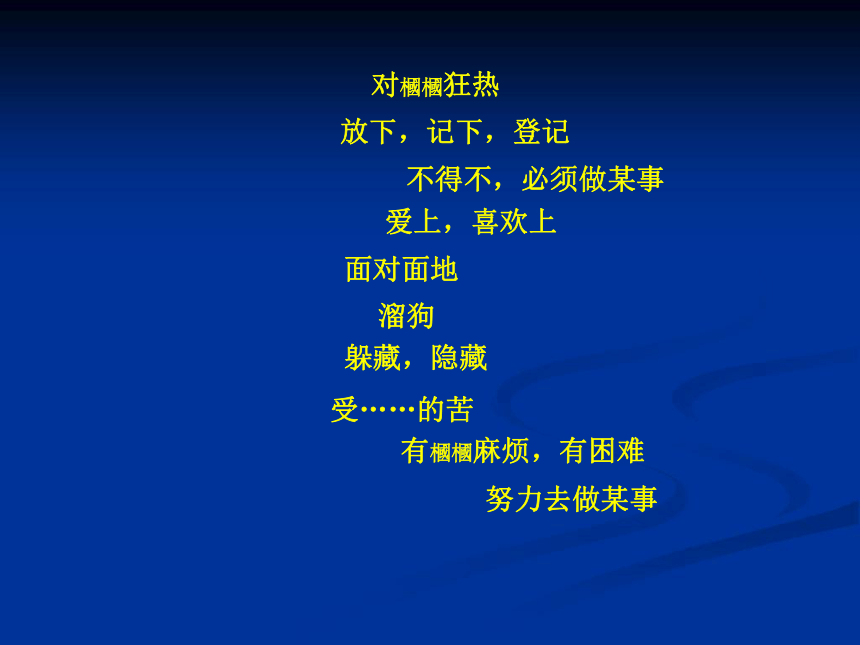
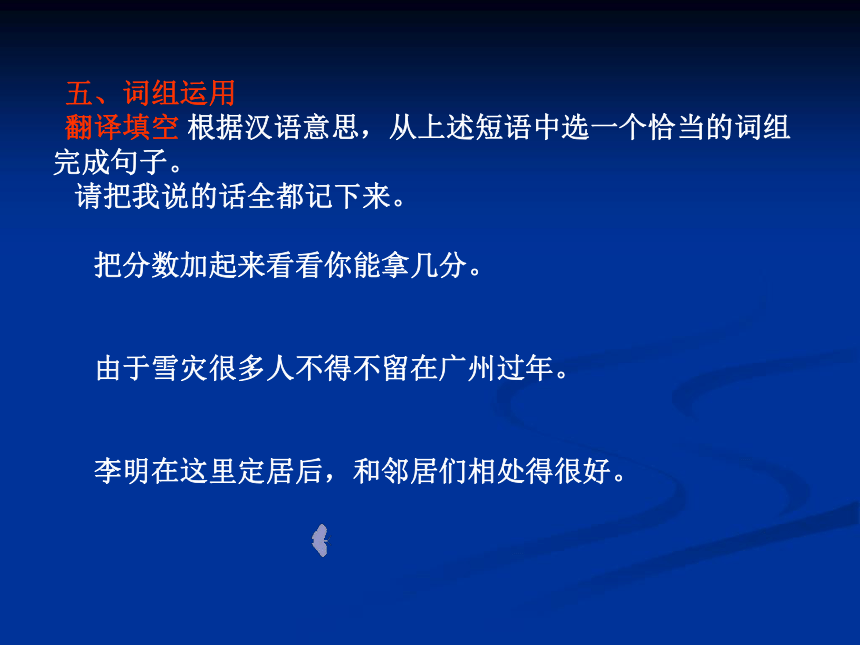
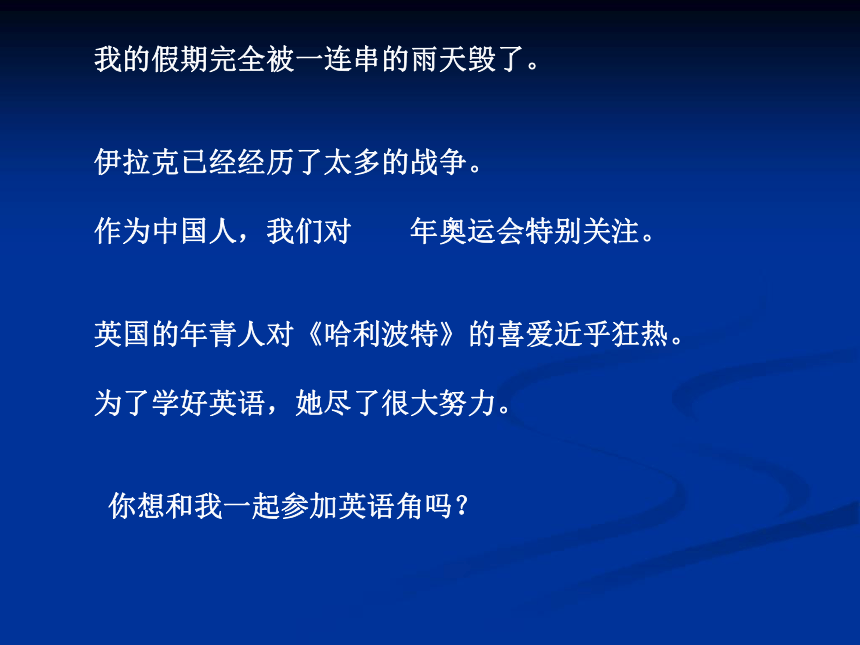
文档简介
课件75张PPT。Language pointsUnit 1基础知识自测一、单词拼写 根据读音词性和词义写出单词。
1. ________ [5??:???????] n.十几岁的青少年
2 _________[?????] n. 点;分数
3. ________ [??5???] v. 使不安;使心烦
4. ________ [??5??:] v. 不理睬;忽视
5. ________ [??:?] v. (使)平静;(使)镇静
6. ________ [???5??:?] v. 涉及;关心
7. ________ [???:?] v. 欺骗;作弊
8. ________ [???] v. 分享;分担
9. ________ [5??????] adj. 疯狂的;狂热的 teenager pointupsetignorecalmconcerncheatsharecrazy10. __________ [5??:???] n. 目的;意图
11. __________ [??5??????] adv. 完全地;整个地
12. __________ [?????] v. 信任;信赖
13. __________ [5????] v. 遭受;经历
14. _____________ [????????5???] n. 调查表;问卷
15. ___________ [??5v???] n. 忠告;建议
16. _____________ [?E5???:??????]v. 交际;沟通
17. __________ [5?????] n. 习惯;习性
18. __________ [5??:??] n. 理由;原因
19. __________ [5??????] n. 自然;自然界
20. __________ [??????5?????] n. 情形;境遇entirely trust sufferquestionnaireadvicecommunicate habit reasonnaturesituationpurpose 二、单词运用 根据句子的结构和意义,在空格处填入一个恰当的单词,或者用括号中所给词的适当形式填空。
1. What is the _______ for your absence of yesterday’s meeting?
2. It is a little difficult to _____ someone down when he or she is excited.
3. A__________ to Anne, a true friend is a person whom you can tell everything to.
4. My English teacher is very friendly to us. She often gives us some a_______ on learning English.reason calmccordingdvice 5. Was it an accident or was it done on _________?
6. He was punished by the school because of his __________ (cheat) in the exam.
7. All the people are__________ about the growth of the younger generation.
8. My naughty son has _______ my bag away somewhere, so I can’t go to work.
9. No matter what he says, don’t _______ him. He’s not honest.
10. It was thundering, so the little girl dared not _______ (walk) the dog outdoors today. She just played with the dog indoors.purposecheating concernedhiddentrust walk 三、词语派生 用括号中所给词的适当形式填空。
1. When learning English, it is quite important to develop the ability of ___________________ (communicate).
2. It’s quite ___________ (nature) for a person to refuse the offer of help from strangers.
3. The headmaster is a ___________ (power) man. All the teachers and students respect him very much.
4. How stupid the emperor was! He was ___________ (cheat) by the two _________ (cheat).
5. The company has a bad reputation. They often lie to the customers. They’re very ___________ (honest).communication natural powerful cheated cheats dishonest 6. With the help of the government, the people have recovered from the ___________ (suffer) in the snow disaster.
7. He was driving very fast because he was ___________ (ignore) of the speed limit.
8. He wrote the ___________ (entirely) novel in only two months.
9. The weather has changed suddenly, and we must alter our plans ___________ (according).
10. The old lady showed a great deal of ___________ (concern) for her son.sufferings ignorant entire accordingly concern 四、词组互译 将下列词组或短语译成中文或英语。
1. ________________ 将……加起来
2. ________________ 使……平静下来
3. ______________________ 关心、挂念
4. ________________ 一连串的,一系列、一套
5. ________________ 与……相处,进展
6. ________________ 经历、经受
7. ________________ 根据
8. ________________ 为了……
9. ________________ 故意
10. ________________ 参加,加入add upcalm downbe concerned abouta series ofget along withgo throughaccording toin order toon purposejoin in11. be crazy about ________________
12. set sth. down _________________
13. have (got) to do sth _________________
14. fall in love with _________________
15. face to face _________________
16. walk the dog _________________
17. hide away _________________
18. suffer from _________________
19. have trouble with_________________
20. make an effort to do sth _________________对……狂热放下,记下,登记不得不,必须做某事爱上,喜欢上面对面地溜狗躲藏,隐藏受……的苦有……麻烦,有困难努力去做某事五、词组运用
翻译填空 根据汉语意思,从上述短语中选一个恰当的词组完成句子。
请把我说的话全都记下来。
Please ________________all that I said.
2. 把分数加起来看看你能拿几分。
____________your scores and see how many points you can get.
3. 由于雪灾很多人不得不留在广州过年。
Many people __________ spend the Chinese New Year in Guangzhou because of the snow disaster.
4. 李明在这里定居后,和邻居们相处得很好。
Since Li Ming _________________ here, he has _______________________ his neighbours. set downAdd uphad to settledgot along well with5. 我的假期完全被一连串的雨天毁了。 My vocation was completely spoiled by________________ rainy days.
6. 伊拉克已经经历了太多的战争。
Iraq has ________________ too many wars.
7. 作为中国人,我们对2008年奥运会特别关注。
As Chinese, we _____ very ____________________ the 2008 Olympic Games.
8. 英国的年青人对《哈利波特》的喜爱近乎狂热。
Young people in Britain ________________ “Harry Potter”.
9. 为了学好英语,她尽了很大努力。
________________ improve English, she makes ________________.
10. 你想和我一起参加英语角吗?
Would you like to ___________the English Corner together with me?a series ofgone throughare concerned aboutare crazy aboutIn order toa great effortjoin in高级句型1. While walking the dog, you were careless and it got loose and was hit by a car.你在遛狗的时候,你不小心让狗松开了,结果被车撞了。
句中While walking the dog, …=While you were walking the dog, …
While doing…意为“在……期间,在做……的时候”。又如:
While providing convenience to consumers, plastic bags have also caused serious pollution, waste of energy and resources.在给顾客提供方面的同时,塑料袋也会影起严重的污染,能源的浪费。■运用:改写以下各句。
(1)When I was traveling in Beijing, I happened to meet a former classmate.
__________________in Beijing, I happened to meet a former classmate.
(2)Though he is over sixty, he still keeps on studying English
_____________________, he still keeps on studying English.
(3)She won’t go to the conference unless he is invited
She won’t go to the conference__________________.
※归纳:此句型的使用条件:
(1)在____________________状语从句中;
(2)如果从句的主语与主句的主语_________,而且从句中的谓语含有______动词的某种形式;
(3)从句中的主语和be可以省略,并且要______________,不能只省略其一。When travelingThough over sixtyunless invited时间、条件、让步相同有be同时省略2. I wonder if it’s because I haven’t been able to be outdoors for so long that I’ve grown so crazy about everything to do with nature.我不知道这是不是因为我长久无法出门的缘故,我变得对一切与大自然有关的事物都无比狂热。
结构分析:本句是一个复杂句,I wonder是主句的主语和谓语,if引导一个宾语从句,在宾语从句中because引导一个原因状语从句,且用了“It is/ was +被强调部分+that/ who +其它”这个强调结构,强调原因状语从句。运用该强调结构需知以下两点:
(1)此句型常用来强调除谓语动词外的句子成分。
(2)此句中的that是固定的, 即使被强调部分是时间或地点,也用that; 强调人物时可用who。■运用:用it is…that…强调下句中的划线部。
Jack broke a glass yesterday afternoon at his uncle’s home.
(1) _________________________broke a glass yesterday afternoon at his uncle’s home.(强调主语)
(2) _______________________Jack broke yesterday afternoon at his uncle’s home.(强调宾语)
(3) _____________________________________Jack broke a glass at his uncle’s home.(强调时间状语)
(4) __________________________________Jack broke a glass yesterday afternoon. (强调地点状语)It was at his uncle’s home thatIt was Jack that / whoIt was a glass thatIt was yesterday afternoon that3. It was the first time in a year and a half that I had seen the night face to face. (从句时态用完成时)这是我第一次目睹夜晚……
句型提炼:It is/was the first time that…have/had done
(1)其中的it可用this或that替代;
(2)first根据实际情况可改为second, third…等;
(3)前面是is时,后面用have/has done;前面是was时,后面用had done。
(4)比较:It is (about /high) time that sb. did/ should do sth.是某人该做某事的时候了(=It is time for sb. to do sth.)。如:It is time that we started (=should start).=It is time for us to start.是我们该动身的时候了。■运用:请用此句型将下列句子译成英文。
(1) 这是我第一次来北京。
This is the first time that I _______________in Beijing.
(2) 那是他第二次上班迟到。
It was the third time that the man ___________
late for work.
(3)他说那是我第一次开出租车。
He said it_________________________________
a taxi. have beenhad beenwas the first time that he had drivenLanguage Data Bankn.测量;检查;鉴定;调查
We had better make a survey of the market.
我们最好做个市场调查。
They were please with their wild survey of his work.
他们广泛审查了他的工作,很满意。
a public opinion survey民意调查
Surveyor 调查员,土地探测员 1 . surveyv. 加,做加法;增添
If you add five and (to) five, you get ten.
Please add more sugar to my coffee.
请在我的咖啡中再加点糖。
2. addHis schooling added up to no more than two years.
他受的学校教育加起来还不到两年。
近义词 :increase put together
反义词: subtract 减去,减
add up 加起来
add up to合计达
add fuel to flames火上加油
add to增加 adj. worried, anxious,
feeling unhappy about sth:
He felt upset about losing the money.
丢了钱,他感到难过
James was upset because he had lost his ticket.
詹姆很烦躁,因为他把车票丢了。
upset= rather unhappy3. upsetv. 使烦乱,扰乱,使不安,使不适
upset one’s play
打乱某人的计划
cause to worry , trouble:
upset one’s stomach
使胃不舒服
The thunder upset her.ignore vt.
to make no notice to someone or something 不理睬,忽视
She will ignore the bell and go somewhere quiet to calm him down.
The best way to deal with an impolite person is to ignore hi4. ignoren. ignorance
无知,愚昧,不学无术
His ignorance is surprising.
I was in complete ignorance of his intentions.
adj. ignorant
无知识的, 不知道的, 愚昧的, 幼稚的
be ignorant of
对……无知,不知道ignore something 和 be ignorant of sth.
If you ignore sth. , you know about it but pay no attention.
eg.
He knew there was a speed limit, but he ignore it and drove very fast.
他知道有车速限制,但却置之不理,把车开得飞快If you are ignorant of sth, you don’t know about it.
eg.
Most passengers were totally ignorant of the safety procedures.
大多数旅客根本不知道安全措施calm adj.
1. quiet and not worried or excited
The police chief advised his men to stay calm and not to lose their tempers.
He tried to keep calm about it.
2. not windy
It became calm after the storm. a calm day 5. calmcalm down :
to become or make someone less angry, excited , or worried
(使)某人安静下来
Eg:
She was very sad, would you please calm her down?calm:
quiet:
silent:
still: 没有干扰的安静;无动静
镇定的
静止不动
寂静;沉默不语
选用quiet; calm; silent; still填空
1) Let’s go and _____ your angry brother down.
2) They moved to the countryside and lived a ______ life.
3) I prefer ______ reading to reading aloud.
4) You should keep _____ while I take a photo of you.calmquietsilentstillhave got to (had got to ) 必须,不得不
1)1 have got to是 have to 的口语形式
Eg. You haven’t got to change at London Station.
2)have got to 的
否定形式只有一种: haven’t got to
疑问式也只有一种: Have you got to…? 并且不可同助动词或情态动词连用。6. have got to3) have got to 的含义与must相似.
have got to 着重于表示客观上的需要,
含有被迫的意味, must 强调主观的需要
eg. We have got to work hard.
4) have got to 没有被动语态
have got to 不同于have got,
have got 意为“有”
eg. I have got a pen.v.& n. 1 使担心, 使不安(通常用被动语态)
be concerned about 为……担心
She is concerned about her son’s future.
2 涉及; 关系到; 参与(一般不能用进行时, 但可用于被动语态) concern oneself with/in sth.
He is concerned in the new project.
She concerns herself with/in social welfare.7. concernadj.
1 松开的, 自由的, 无束缚的
get/be loose 未拴住的, 松开的
I have one hand loose but the other is tied.
This dog must not be left loose.
2 松的,松动的,不紧的,宽松的;
a loose button 快掉的扣子
the loose soil 疏松的土壤
a loose sweater宽松的套衫8. loose9.?go through 经历The poor girl has gone through a lot since her parents died.go through the test in class struggle经历阶级斗争的考验10.?hide(hid, hidden) awayThey were afraid and hid away11. set down=write down/take downI set down everything that happened then.You should set down the key language
points in your notebook.12. series (单复同形)
a series of + n (pl) There is a television series on this channel every night.a series of good harvests/ questionsThere has been a series of car accidents at the crossing. 13.?stay (link v) + adj/ n1) I stayed awake through the stormy night.2) He stayed single all his life.3) The weather stayed sultry.天气持续闷热。4) Stay seated!坐在那别动!14.?do sth on purposeI think she lost the key on purpose.do sth with/ for the purpose of…He took along one of his pictures with the purpose of finding a job. = He went to town in order that he could sell the painting. 15. in order to = so as toHe went to town in order to sell the painting.16. much too + adj / adv
too much (+ un) = more than enough
The dress is _______ long for me.
There is very little room in the house because it has far________ furniture.
It’s _________hot.
I have _________ homework to do, so I
have no time to go theremuch toomuch tootoo muchtoo much17.?happen vi.1) What time did the accident happen?2) No one know who had fired the gun— it all happened so quickly.sb. happen to do sth. (似乎)碰巧= to be or as if by chanceI happened to see her on my way to work.If you happen to find it, please let me know.18.?hold/ have sb in one’s power
控制住/ 摆布某人 19. It’s the first/ second time that 某人第一 /二次做The thundering clouds held me entirely in their power.It was the first time in a year and a half that I’d seen the night face to face.翻译下列短语:
1. 把…加起来
___________________________
2. 总计共达
___________________________
3. 把……加到……里
___________________________
4. 应该 / 有责任做某事
___________________________add upadd up toadd sth. to sth.have got to (do sth.)5. 经历 / 经受……;穿过;浏览
_____________________
6. 躲 / 藏起来
_________________________________
7. 一连串 / 一系列的
______________________________
8. 写下 / 记下
_________________________________go through hide away a series of set down9. 受痛苦 / 受损失 / 受折磨
_________________________
10. 和某人(很好地)相处
___________________________
11. 爱上某人 / 某物
_________________________________
12. 对……着迷
________________________________suffer from get along (well) withfall in love withbe crazy about / on13. 渴望某物 / 迷恋某人
_____________________________
14. 按照,根据……
__________________________________
15. 参加(游戏 / 活动)等
____________________________
16. 如此……以至于……
______________________________be crazy foraccording to join inso … that… 17. 面对面
__________________________________
18. 有目的地/ 特意(做某事)
_________________________
19. 平静 / 镇静下来
_________________________________
20. 关心 / 挂念 (某人 / 某事)
__________________________be concerned aboutface to faceon purposecalm downGrammar直接引语与间接引语由直接引语变为间接引语需注意的四个变化时态变化
人称变化
状语变化(时间状语和地点状语)
句型变化(陈述句、一般疑问句、特殊疑问句和祈使句)1 时态变化直接引语变间接引语时态不变的情况当直接引语是客观真理时。
当直接引语中有具体的过去某年、某月、某日作状语时。
当直接引语是过去完成时态时。
当主句谓语动词是一般现在时、现在完成时、一般将来时态时。
当直接引语表示的是谚语或名人名言时。
当直接引语表示客观的时刻表时。 He said, “The earth goes around the sun.”
He said that the earth goes around the sun.
Mr. Wang said, “I was born in China in September,1972. ”
Mr. Wang said he was born in China in September,1972.
She said,“They had left when I arrived there. ”
She said they had left when she arrived there.
She says, “Miss liu is good at English.”
She says Miss liu is good at English.
He said, “ Where there is a will,there is a way. ”
He said that where there is a will,there is a way.
He said, “The plane takes off at 6:30 am.”
He said that the plane takes off at 6:30 am.
GOOD LUCK“I was driving carefully when my car hit the tree.”He told the police.
He told the police that he had been driving carefully when his car hit the tree.”He told the police.
注意主从复合句的直接引语变为间接引语时,从句中的一般过去时通常不变为过去完成时。人称变化He said,“I like it very much.”He said that he liked it very much.
He said to me,“I’ve left my book in
your room.”
He told me that he had left his book in my room.状语变化She said to me,”I lived there five years
ago.”
She told me she had lived there five years before.
She said to me,”I will see her next week.”
She told me she would see her the next week.
句型变化直接引语为陈述句时变间接引语的句型变化:
直接引语若为陈述句,变为间接引语时,间接引语往往变成由从属连词that(在口语中可省略)引导的宾语从句,引述动词常用say、tell等,从句中的人称、时态、指示代词、时间状语、地点状语等都要作相应的变化
“I’m tired,”he said.
He said (that) he was tried.
Jim said, “I’ve read Tony ’s book and I didn’t understand it.”
Jim said (that) he had read Tony ’s book and he didn’t understand it.
直接引语为疑问句时变间接引语的句型变化: 直接引语为疑问句时,变为间接引语时除注意在人称、时态和状语等方面相应变化外,还应注意:
间接引语应改为陈述语序。
特殊疑问句的疑问词应保留。
一般疑问句、选择疑问句和反意疑问句在变为间接引语时要用连词whether(或if)。
“Is there something wrong,Madam?”asked the policeman.
The policeman asked the woman whether/if there was something wrong.
She asked, “What it is? What’s going to happen now?”
She asked what it was and what was going to happen then.
“It’s Mary,isn’t it?”asked Jane.
Jane asked whether it was Mary.
“Is it Mary or Lucy?”asked Jane. Jane asked whether it was Mary or Lucy.注意
Whether 可与or not 连用, 表示一种选择。而if 则不可。
He wants to know whether or not we went to dinner.
当疑问词作主语时,间接引语的语序不变。
“What’s the matter with you?”said the docotor.
The docotor asked what’s the matter with me.My brother said to me, “I’m going to have a holiday next week. My brother told me he was going to have a holiday the next week.
Mother said to me, “What are you doing in the room?”
Mother asked me what I was doing in the room.
He asked , “Can I borrow your bike?”He asked whether/if he could borrow my bike.
Tom said to me, “Do you like football?”
Tom asked me whether/if I liked football. The visitor ___that he ___very glad to visit our country.A. said ; was B.said ; had been
C. told ; was D.spoke ; had been
答案:AHe said, “These books are mine.”He said that those books were his.
She said, “I went there yesterday.”
She said that she had gone there the day before.
“ I’ll finish my work tomorrow,”she said. She said that she would finish her work the next day.
“ Will you go abroad or stay in Beijing?”he asked me.
He asked me whether/if I would go abroad or stay in Beijing.
He asked her, “You have passed the eaxm, haven’t you?”
He asked her whether/if she had passed the exam.
Thank you for your attention!
1. ________ [5??:???????] n.十几岁的青少年
2 _________[?????] n. 点;分数
3. ________ [??5???] v. 使不安;使心烦
4. ________ [??5??:] v. 不理睬;忽视
5. ________ [??:?] v. (使)平静;(使)镇静
6. ________ [???5??:?] v. 涉及;关心
7. ________ [???:?] v. 欺骗;作弊
8. ________ [???] v. 分享;分担
9. ________ [5??????] adj. 疯狂的;狂热的 teenager pointupsetignorecalmconcerncheatsharecrazy10. __________ [5??:???] n. 目的;意图
11. __________ [??5??????] adv. 完全地;整个地
12. __________ [?????] v. 信任;信赖
13. __________ [5????] v. 遭受;经历
14. _____________ [????????5???] n. 调查表;问卷
15. ___________ [??5v???] n. 忠告;建议
16. _____________ [?E5???:??????]v. 交际;沟通
17. __________ [5?????] n. 习惯;习性
18. __________ [5??:??] n. 理由;原因
19. __________ [5??????] n. 自然;自然界
20. __________ [??????5?????] n. 情形;境遇entirely trust sufferquestionnaireadvicecommunicate habit reasonnaturesituationpurpose 二、单词运用 根据句子的结构和意义,在空格处填入一个恰当的单词,或者用括号中所给词的适当形式填空。
1. What is the _______ for your absence of yesterday’s meeting?
2. It is a little difficult to _____ someone down when he or she is excited.
3. A__________ to Anne, a true friend is a person whom you can tell everything to.
4. My English teacher is very friendly to us. She often gives us some a_______ on learning English.reason calmccordingdvice 5. Was it an accident or was it done on _________?
6. He was punished by the school because of his __________ (cheat) in the exam.
7. All the people are__________ about the growth of the younger generation.
8. My naughty son has _______ my bag away somewhere, so I can’t go to work.
9. No matter what he says, don’t _______ him. He’s not honest.
10. It was thundering, so the little girl dared not _______ (walk) the dog outdoors today. She just played with the dog indoors.purposecheating concernedhiddentrust walk 三、词语派生 用括号中所给词的适当形式填空。
1. When learning English, it is quite important to develop the ability of ___________________ (communicate).
2. It’s quite ___________ (nature) for a person to refuse the offer of help from strangers.
3. The headmaster is a ___________ (power) man. All the teachers and students respect him very much.
4. How stupid the emperor was! He was ___________ (cheat) by the two _________ (cheat).
5. The company has a bad reputation. They often lie to the customers. They’re very ___________ (honest).communication natural powerful cheated cheats dishonest 6. With the help of the government, the people have recovered from the ___________ (suffer) in the snow disaster.
7. He was driving very fast because he was ___________ (ignore) of the speed limit.
8. He wrote the ___________ (entirely) novel in only two months.
9. The weather has changed suddenly, and we must alter our plans ___________ (according).
10. The old lady showed a great deal of ___________ (concern) for her son.sufferings ignorant entire accordingly concern 四、词组互译 将下列词组或短语译成中文或英语。
1. ________________ 将……加起来
2. ________________ 使……平静下来
3. ______________________ 关心、挂念
4. ________________ 一连串的,一系列、一套
5. ________________ 与……相处,进展
6. ________________ 经历、经受
7. ________________ 根据
8. ________________ 为了……
9. ________________ 故意
10. ________________ 参加,加入add upcalm downbe concerned abouta series ofget along withgo throughaccording toin order toon purposejoin in11. be crazy about ________________
12. set sth. down _________________
13. have (got) to do sth _________________
14. fall in love with _________________
15. face to face _________________
16. walk the dog _________________
17. hide away _________________
18. suffer from _________________
19. have trouble with_________________
20. make an effort to do sth _________________对……狂热放下,记下,登记不得不,必须做某事爱上,喜欢上面对面地溜狗躲藏,隐藏受……的苦有……麻烦,有困难努力去做某事五、词组运用
翻译填空 根据汉语意思,从上述短语中选一个恰当的词组完成句子。
请把我说的话全都记下来。
Please ________________all that I said.
2. 把分数加起来看看你能拿几分。
____________your scores and see how many points you can get.
3. 由于雪灾很多人不得不留在广州过年。
Many people __________ spend the Chinese New Year in Guangzhou because of the snow disaster.
4. 李明在这里定居后,和邻居们相处得很好。
Since Li Ming _________________ here, he has _______________________ his neighbours. set downAdd uphad to settledgot along well with5. 我的假期完全被一连串的雨天毁了。 My vocation was completely spoiled by________________ rainy days.
6. 伊拉克已经经历了太多的战争。
Iraq has ________________ too many wars.
7. 作为中国人,我们对2008年奥运会特别关注。
As Chinese, we _____ very ____________________ the 2008 Olympic Games.
8. 英国的年青人对《哈利波特》的喜爱近乎狂热。
Young people in Britain ________________ “Harry Potter”.
9. 为了学好英语,她尽了很大努力。
________________ improve English, she makes ________________.
10. 你想和我一起参加英语角吗?
Would you like to ___________the English Corner together with me?a series ofgone throughare concerned aboutare crazy aboutIn order toa great effortjoin in高级句型1. While walking the dog, you were careless and it got loose and was hit by a car.你在遛狗的时候,你不小心让狗松开了,结果被车撞了。
句中While walking the dog, …=While you were walking the dog, …
While doing…意为“在……期间,在做……的时候”。又如:
While providing convenience to consumers, plastic bags have also caused serious pollution, waste of energy and resources.在给顾客提供方面的同时,塑料袋也会影起严重的污染,能源的浪费。■运用:改写以下各句。
(1)When I was traveling in Beijing, I happened to meet a former classmate.
__________________in Beijing, I happened to meet a former classmate.
(2)Though he is over sixty, he still keeps on studying English
_____________________, he still keeps on studying English.
(3)She won’t go to the conference unless he is invited
She won’t go to the conference__________________.
※归纳:此句型的使用条件:
(1)在____________________状语从句中;
(2)如果从句的主语与主句的主语_________,而且从句中的谓语含有______动词的某种形式;
(3)从句中的主语和be可以省略,并且要______________,不能只省略其一。When travelingThough over sixtyunless invited时间、条件、让步相同有be同时省略2. I wonder if it’s because I haven’t been able to be outdoors for so long that I’ve grown so crazy about everything to do with nature.我不知道这是不是因为我长久无法出门的缘故,我变得对一切与大自然有关的事物都无比狂热。
结构分析:本句是一个复杂句,I wonder是主句的主语和谓语,if引导一个宾语从句,在宾语从句中because引导一个原因状语从句,且用了“It is/ was +被强调部分+that/ who +其它”这个强调结构,强调原因状语从句。运用该强调结构需知以下两点:
(1)此句型常用来强调除谓语动词外的句子成分。
(2)此句中的that是固定的, 即使被强调部分是时间或地点,也用that; 强调人物时可用who。■运用:用it is…that…强调下句中的划线部。
Jack broke a glass yesterday afternoon at his uncle’s home.
(1) _________________________broke a glass yesterday afternoon at his uncle’s home.(强调主语)
(2) _______________________Jack broke yesterday afternoon at his uncle’s home.(强调宾语)
(3) _____________________________________Jack broke a glass at his uncle’s home.(强调时间状语)
(4) __________________________________Jack broke a glass yesterday afternoon. (强调地点状语)It was at his uncle’s home thatIt was Jack that / whoIt was a glass thatIt was yesterday afternoon that3. It was the first time in a year and a half that I had seen the night face to face. (从句时态用完成时)这是我第一次目睹夜晚……
句型提炼:It is/was the first time that…have/had done
(1)其中的it可用this或that替代;
(2)first根据实际情况可改为second, third…等;
(3)前面是is时,后面用have/has done;前面是was时,后面用had done。
(4)比较:It is (about /high) time that sb. did/ should do sth.是某人该做某事的时候了(=It is time for sb. to do sth.)。如:It is time that we started (=should start).=It is time for us to start.是我们该动身的时候了。■运用:请用此句型将下列句子译成英文。
(1) 这是我第一次来北京。
This is the first time that I _______________in Beijing.
(2) 那是他第二次上班迟到。
It was the third time that the man ___________
late for work.
(3)他说那是我第一次开出租车。
He said it_________________________________
a taxi. have beenhad beenwas the first time that he had drivenLanguage Data Bankn.测量;检查;鉴定;调查
We had better make a survey of the market.
我们最好做个市场调查。
They were please with their wild survey of his work.
他们广泛审查了他的工作,很满意。
a public opinion survey民意调查
Surveyor 调查员,土地探测员 1 . surveyv. 加,做加法;增添
If you add five and (to) five, you get ten.
Please add more sugar to my coffee.
请在我的咖啡中再加点糖。
2. addHis schooling added up to no more than two years.
他受的学校教育加起来还不到两年。
近义词 :increase put together
反义词: subtract 减去,减
add up 加起来
add up to合计达
add fuel to flames火上加油
add to增加 adj. worried, anxious,
feeling unhappy about sth:
He felt upset about losing the money.
丢了钱,他感到难过
James was upset because he had lost his ticket.
詹姆很烦躁,因为他把车票丢了。
upset= rather unhappy3. upsetv. 使烦乱,扰乱,使不安,使不适
upset one’s play
打乱某人的计划
cause to worry , trouble:
upset one’s stomach
使胃不舒服
The thunder upset her.ignore vt.
to make no notice to someone or something 不理睬,忽视
She will ignore the bell and go somewhere quiet to calm him down.
The best way to deal with an impolite person is to ignore hi4. ignoren. ignorance
无知,愚昧,不学无术
His ignorance is surprising.
I was in complete ignorance of his intentions.
adj. ignorant
无知识的, 不知道的, 愚昧的, 幼稚的
be ignorant of
对……无知,不知道ignore something 和 be ignorant of sth.
If you ignore sth. , you know about it but pay no attention.
eg.
He knew there was a speed limit, but he ignore it and drove very fast.
他知道有车速限制,但却置之不理,把车开得飞快If you are ignorant of sth, you don’t know about it.
eg.
Most passengers were totally ignorant of the safety procedures.
大多数旅客根本不知道安全措施calm adj.
1. quiet and not worried or excited
The police chief advised his men to stay calm and not to lose their tempers.
He tried to keep calm about it.
2. not windy
It became calm after the storm. a calm day 5. calmcalm down :
to become or make someone less angry, excited , or worried
(使)某人安静下来
Eg:
She was very sad, would you please calm her down?calm:
quiet:
silent:
still: 没有干扰的安静;无动静
镇定的
静止不动
寂静;沉默不语
选用quiet; calm; silent; still填空
1) Let’s go and _____ your angry brother down.
2) They moved to the countryside and lived a ______ life.
3) I prefer ______ reading to reading aloud.
4) You should keep _____ while I take a photo of you.calmquietsilentstillhave got to (had got to ) 必须,不得不
1)1 have got to是 have to 的口语形式
Eg. You haven’t got to change at London Station.
2)have got to 的
否定形式只有一种: haven’t got to
疑问式也只有一种: Have you got to…? 并且不可同助动词或情态动词连用。6. have got to3) have got to 的含义与must相似.
have got to 着重于表示客观上的需要,
含有被迫的意味, must 强调主观的需要
eg. We have got to work hard.
4) have got to 没有被动语态
have got to 不同于have got,
have got 意为“有”
eg. I have got a pen.v.& n. 1 使担心, 使不安(通常用被动语态)
be concerned about 为……担心
She is concerned about her son’s future.
2 涉及; 关系到; 参与(一般不能用进行时, 但可用于被动语态) concern oneself with/in sth.
He is concerned in the new project.
She concerns herself with/in social welfare.7. concernadj.
1 松开的, 自由的, 无束缚的
get/be loose 未拴住的, 松开的
I have one hand loose but the other is tied.
This dog must not be left loose.
2 松的,松动的,不紧的,宽松的;
a loose button 快掉的扣子
the loose soil 疏松的土壤
a loose sweater宽松的套衫8. loose9.?go through 经历The poor girl has gone through a lot since her parents died.go through the test in class struggle经历阶级斗争的考验10.?hide(hid, hidden) awayThey were afraid and hid away11. set down=write down/take downI set down everything that happened then.You should set down the key language
points in your notebook.12. series (单复同形)
a series of + n (pl) There is a television series on this channel every night.a series of good harvests/ questionsThere has been a series of car accidents at the crossing. 13.?stay (link v) + adj/ n1) I stayed awake through the stormy night.2) He stayed single all his life.3) The weather stayed sultry.天气持续闷热。4) Stay seated!坐在那别动!14.?do sth on purposeI think she lost the key on purpose.do sth with/ for the purpose of…He took along one of his pictures with the purpose of finding a job. = He went to town in order that he could sell the painting. 15. in order to = so as toHe went to town in order to sell the painting.16. much too + adj / adv
too much (+ un) = more than enough
The dress is _______ long for me.
There is very little room in the house because it has far________ furniture.
It’s _________hot.
I have _________ homework to do, so I
have no time to go theremuch toomuch tootoo muchtoo much17.?happen vi.1) What time did the accident happen?2) No one know who had fired the gun— it all happened so quickly.sb. happen to do sth. (似乎)碰巧= to be or as if by chanceI happened to see her on my way to work.If you happen to find it, please let me know.18.?hold/ have sb in one’s power
控制住/ 摆布某人 19. It’s the first/ second time that 某人第一 /二次做The thundering clouds held me entirely in their power.It was the first time in a year and a half that I’d seen the night face to face.翻译下列短语:
1. 把…加起来
___________________________
2. 总计共达
___________________________
3. 把……加到……里
___________________________
4. 应该 / 有责任做某事
___________________________add upadd up toadd sth. to sth.have got to (do sth.)5. 经历 / 经受……;穿过;浏览
_____________________
6. 躲 / 藏起来
_________________________________
7. 一连串 / 一系列的
______________________________
8. 写下 / 记下
_________________________________go through hide away a series of set down9. 受痛苦 / 受损失 / 受折磨
_________________________
10. 和某人(很好地)相处
___________________________
11. 爱上某人 / 某物
_________________________________
12. 对……着迷
________________________________suffer from get along (well) withfall in love withbe crazy about / on13. 渴望某物 / 迷恋某人
_____________________________
14. 按照,根据……
__________________________________
15. 参加(游戏 / 活动)等
____________________________
16. 如此……以至于……
______________________________be crazy foraccording to join inso … that… 17. 面对面
__________________________________
18. 有目的地/ 特意(做某事)
_________________________
19. 平静 / 镇静下来
_________________________________
20. 关心 / 挂念 (某人 / 某事)
__________________________be concerned aboutface to faceon purposecalm downGrammar直接引语与间接引语由直接引语变为间接引语需注意的四个变化时态变化
人称变化
状语变化(时间状语和地点状语)
句型变化(陈述句、一般疑问句、特殊疑问句和祈使句)1 时态变化直接引语变间接引语时态不变的情况当直接引语是客观真理时。
当直接引语中有具体的过去某年、某月、某日作状语时。
当直接引语是过去完成时态时。
当主句谓语动词是一般现在时、现在完成时、一般将来时态时。
当直接引语表示的是谚语或名人名言时。
当直接引语表示客观的时刻表时。 He said, “The earth goes around the sun.”
He said that the earth goes around the sun.
Mr. Wang said, “I was born in China in September,1972. ”
Mr. Wang said he was born in China in September,1972.
She said,“They had left when I arrived there. ”
She said they had left when she arrived there.
She says, “Miss liu is good at English.”
She says Miss liu is good at English.
He said, “ Where there is a will,there is a way. ”
He said that where there is a will,there is a way.
He said, “The plane takes off at 6:30 am.”
He said that the plane takes off at 6:30 am.
GOOD LUCK“I was driving carefully when my car hit the tree.”He told the police.
He told the police that he had been driving carefully when his car hit the tree.”He told the police.
注意主从复合句的直接引语变为间接引语时,从句中的一般过去时通常不变为过去完成时。人称变化He said,“I like it very much.”He said that he liked it very much.
He said to me,“I’ve left my book in
your room.”
He told me that he had left his book in my room.状语变化She said to me,”I lived there five years
ago.”
She told me she had lived there five years before.
She said to me,”I will see her next week.”
She told me she would see her the next week.
句型变化直接引语为陈述句时变间接引语的句型变化:
直接引语若为陈述句,变为间接引语时,间接引语往往变成由从属连词that(在口语中可省略)引导的宾语从句,引述动词常用say、tell等,从句中的人称、时态、指示代词、时间状语、地点状语等都要作相应的变化
“I’m tired,”he said.
He said (that) he was tried.
Jim said, “I’ve read Tony ’s book and I didn’t understand it.”
Jim said (that) he had read Tony ’s book and he didn’t understand it.
直接引语为疑问句时变间接引语的句型变化: 直接引语为疑问句时,变为间接引语时除注意在人称、时态和状语等方面相应变化外,还应注意:
间接引语应改为陈述语序。
特殊疑问句的疑问词应保留。
一般疑问句、选择疑问句和反意疑问句在变为间接引语时要用连词whether(或if)。
“Is there something wrong,Madam?”asked the policeman.
The policeman asked the woman whether/if there was something wrong.
She asked, “What it is? What’s going to happen now?”
She asked what it was and what was going to happen then.
“It’s Mary,isn’t it?”asked Jane.
Jane asked whether it was Mary.
“Is it Mary or Lucy?”asked Jane. Jane asked whether it was Mary or Lucy.注意
Whether 可与or not 连用, 表示一种选择。而if 则不可。
He wants to know whether or not we went to dinner.
当疑问词作主语时,间接引语的语序不变。
“What’s the matter with you?”said the docotor.
The docotor asked what’s the matter with me.My brother said to me, “I’m going to have a holiday next week. My brother told me he was going to have a holiday the next week.
Mother said to me, “What are you doing in the room?”
Mother asked me what I was doing in the room.
He asked , “Can I borrow your bike?”He asked whether/if he could borrow my bike.
Tom said to me, “Do you like football?”
Tom asked me whether/if I liked football. The visitor ___that he ___very glad to visit our country.A. said ; was B.said ; had been
C. told ; was D.spoke ; had been
答案:AHe said, “These books are mine.”He said that those books were his.
She said, “I went there yesterday.”
She said that she had gone there the day before.
“ I’ll finish my work tomorrow,”she said. She said that she would finish her work the next day.
“ Will you go abroad or stay in Beijing?”he asked me.
He asked me whether/if I would go abroad or stay in Beijing.
He asked her, “You have passed the eaxm, haven’t you?”
He asked her whether/if she had passed the exam.
Thank you for your attention!
